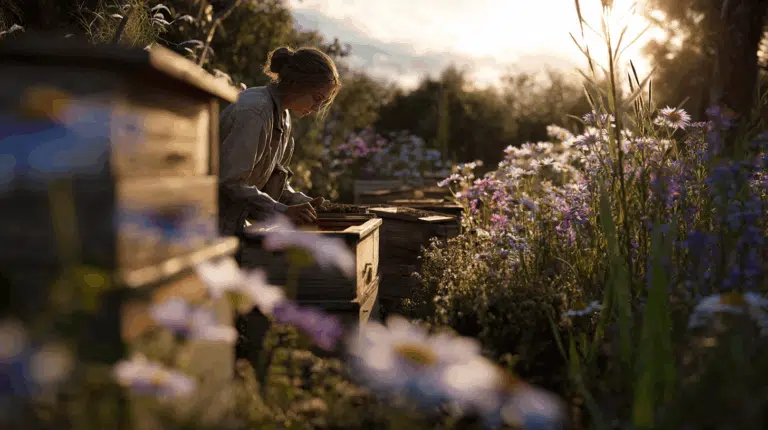A prolifically flowering and colorful cut flower with full, often double blooms. Ideal for bouquets and borders, it brings long-lasting color and charm to the garden and vase.
With Callistephus seeds from EasySeeds.eu, you can fill your garden or border with graceful, colorful cut flowers that are ideal for bouquets and flower arrangements. Callistephus, better known as Aster , is a popular cut flower known for its lush blooms and sturdy stems. Growing Callistephus from seed as a cut flower gives gardeners the freedom to create their own bouquets while creating a vibrant, blooming garden.
Beautiful flowers and a variety of colors.
Asters produce blooms in various shades, including white, pink, purple, red, and blue. Their compact rosettes and sturdy stems make them ideal for use in bouquets and flower arrangements.
Long-lasting blooms:
Callistephus blooms from mid-summer to early autumn, providing months of color in the garden. This long flowering period makes Aster a reliable choice for cut flowers in your garden.
Easy-care and versatile:
Asters are easy to grow, relatively low-maintenance, and suitable for both borders and pots. They're perfect for both novice and experienced gardeners.
Bee-friendly and ecological
The flowers attract bees, butterflies and other pollinators, which contributes to biodiversity and a healthy garden environment.
Cut flowers for bouquets – Use the sturdy stems and colorful flowers for fresh bouquets and flower arrangements indoors.
Borders and flowerbeds – Add height, structure and colour to your borders with these exuberant flowers.
Pots and containers – Compact Aster varieties are suitable for pots, balcony boxes and patios.
Combinations with other cut flowers – Combine Aster with Zinnia, Tagetes or Antirrhinum for a playful and colorful effect.
Sowing time – Sow indoors from February to April or directly outdoors after the last frost.
Soil & Location – Use well-draining seed compost and choose a sunny location for optimal growth and flowering.
Care – Keep the soil moist during germination and the early growth phase; feed regularly to encourage strong, healthy plants.
Hardening off – Gradually acclimatise young plants to outdoor conditions before planting them out permanently.
Maintenance – Remove wilted flowers (deadheading) to prolong flowering and maintain healthy stems.
At EasySeeds.eu, you'll find a wide range of Callistephus (Aster) seeds , selected for their germination rate, color variation, and flowering intensity. Whether you want to fill borders, embellish pots, or create your own bouquets, our Aster seeds will help bring your garden to life in every season.
🌸 Discover our range now and order easily online – buy Callistephus (Aster) seeds at EasySeeds.eu!

Callistephus, or Chinese asters, offer a wide range of colors and flower shapes that can enhance any arrangement. They are perfect for mixed bouquets and as accent flowers thanks to their bright colors and sturdy stems.
Callistephus (Chinese aster) cultivation requires rotation for several reasons, but the most important is that
Chinese asters are susceptible to root rot, Fusarium, and other fungal diseases. By planting a different crop in the same spot each year, you reduce the risk of disease buildup in the soil.
Plant Aster seedlings 20–30 cm apart for ample air circulation and strong stems.
Aphids, thrips, and fungal diseases such as powdery mildew; check regularly and treat organically if necessary.
Yes, Aster is an annual plant that is sensitive to frost; sow or plant only after the last frost.